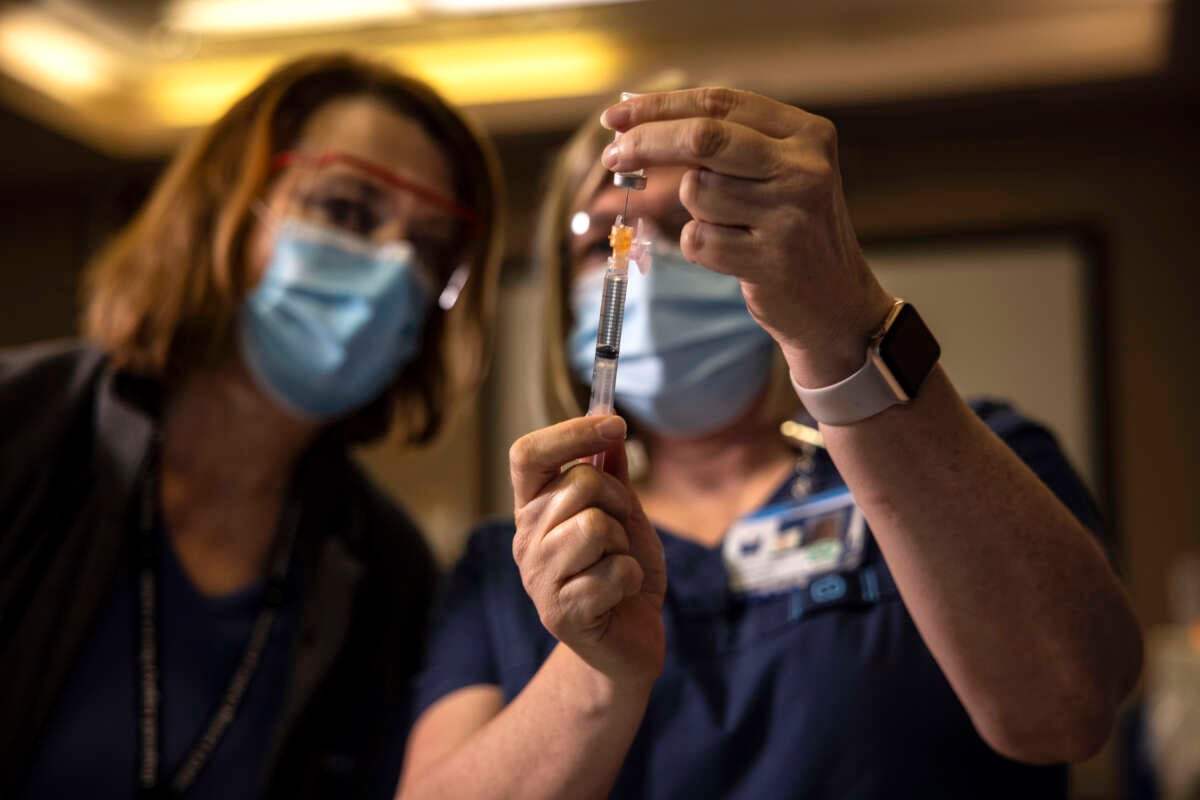Truthout is an indispensable resource for activists, movement leaders and workers everywhere. Please make this work possible with a quick donation.
Thousands of Oregon medical caregivers at Providence hospitals launched what organizers are calling the largest healthcare strike in state history Friday as they fight for improved patient care, fair wages, and better working conditions in their new contract.
Around 5,000 nurses, doctors, midwives, and other healthcare professionals began their indefinite strike at 6:00 am local time Friday, Oregon Public Broadcasting reported. Workers walked off the job at Providence hospitals including: St. Vincent Medical Center in Portland, Providence Portland, Providence Willamette Falls in Oregon City, Providence Milwaukie, Providence Hood River, Providence Seaside, Providence Newberg, and Providence Medford. Numerous clinics are also affected.
Striking nurses are seeking higher wages, better nurse-to-patient ratios, more paid time off, and lower out-of-pocket costs on their healthcare plans. Doctors want Providence to cap hospital admissions when patient numbers climb too high.
“We’re asking for competitive compensation that reflects the reality of our work, the long hours, the emotional toll, and the ever-growing demands that are placed on us,” Oregon Nurses Association (ONA) member Gina Ottinger, a registered nurse, told the Oregon Capital Chronicle on Friday. “We’re asking for wages that keep pace with inflation.”
Healthcare workers’ unions are also asking for employment guarantees should Providence sell off their hospitals. The unions have also flagged contract alignment issues; Providence favors a three-year deal, while workers are seeking two-year agreements.
“This strike could have been avoided,” ONA executive director Anne Tan Piazza said at a Thursday press conference. “We need Providence to stop refusing to negotiate and come back to the table.”
In a recent statement explaining the strike, ONA said: “Providence is a $30 billion corporation whose top executives make million-dollar salaries and are too focused on profits and not enough on high-quality patient care. Providence’s outgoing CEO made more than $12 million in 2024.”
“The corporatization of healthcare has left many Providence employees frustrated and burnt out as they are being told to spend less and less time with patients and more time trying to drive up profits,” the union added. “Providence offers their employees healthcare plans that are far worse than other healthcare systems, with some Providence employees having to pay $5,000 out of pocket to receive services at the place they work.”
Providence officials say the company has made “competitive offers” to hospital bargaining units, “including double-digit pay increases for hospital nurses representing more than $12,000 a year for a typical nurse.”
In a Friday statement referencing Oregon’s mandatory 10-day strike notice period, Democratic Oregon Gov. Tina Kotek said that “Providence wasted 10 days when they could have been at the table making progress towards a comprehensive resolution of their labor dispute.”
“We must take care of the people who take care of Oregonians — all hospital staff deserve a fair contract,” she added. “Oregonians are already experiencing disruptions to care. All parties must return to the table immediately to resolve their disagreements so normal operations and care can resume.”
A terrifying moment. We appeal for your support.
In the last weeks, we have witnessed an authoritarian assault on communities in Minnesota and across the nation.
The need for truthful, grassroots reporting is urgent at this cataclysmic historical moment. Yet, Trump-aligned billionaires and other allies have taken over many legacy media outlets — the culmination of a decades-long campaign to place control of the narrative into the hands of the political right.
We refuse to let Trump’s blatant propaganda machine go unchecked. Untethered to corporate ownership or advertisers, Truthout remains fearless in our reporting and our determination to use journalism as a tool for justice.
But we need your help just to fund our basic expenses. Over 80 percent of Truthout’s funding comes from small individual donations from our community of readers, and over a third of our total budget is supported by recurring monthly donors.
Truthout has launched a fundraiser, and we have a goal to add 273 new monthly donors in the next 72 hours. Whether you can make a small monthly donation or a larger one-time gift, Truthout only works with your support.
